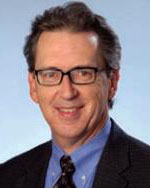Younger Physicians Are Better Detectors at Colonoscopy
Douglas K. Rex, MD, FASGE reviewing Shaukat A, et al. Clin Gastroenterol Hepatol 2019 Sep 10.
A previous study showed that female endoscopists had higher detection rates at colonoscopy than male endoscopists.
In this study of a community-based practice with 180,150 completed screening colonoscopies performed by 60 physicians in 5 ambulatory endoscopy centers in Minneapolis, adenoma detection rates (ADRs) ranged from 13.7% to 52.9%, detection of sessile serrated lesions (SSLs) ranged from 2.1% to 14.5%, and detection of advanced adenomas ranged from 1.3% to 14.1%. ADRs were highly associated with detection of SSLs. Higher detection was associated with longer withdrawal time. Physician age <50 years was also associated with higher ADR and detection of SSLs, and nearly reached significance for detection of advanced neoplasms. The gender of the endoscopist did not predict detection.
COMMENT
Factors driving better detection by young endoscopists are not clear from the study, but they might reflect better training or more attention to the colonoscopy quality movement and measures to improve quality. Failure of advanced neoplasia to reach an association with endoscopist age could reflect the smaller numbers of lesions or the unreliability of size measurements by endoscopists.
Note to readers: At the time we reviewed this paper, its publisher noted that it was not in final form and that subsequent changes might be made.

Douglas K. Rex, MD, FASGE
CITATION(S)
Shaukat A, Gravely AA, Kim A, Church TR, Allen JI. Younger physicians and longer withdrawal times are associated with detection of advanced neoplasia in a large community practice. Clin Gastroenterol Hepatol 2019 Sep 10. (Epub ahead of print) (https://doi.org/10.1016/j.cgh.2019.08.057)
